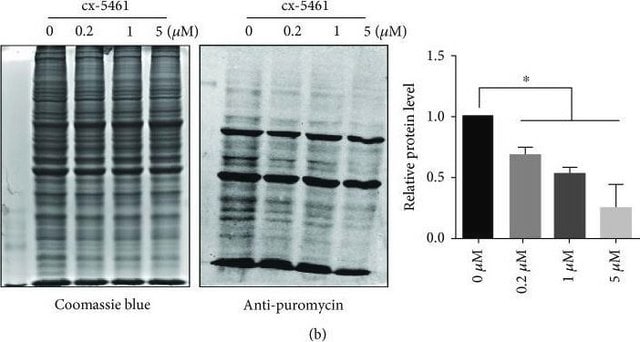P8333
Anti-Protein Kinase Cδ antibody produced in rabbit
whole antiserum
Synonyme(s) :
Anti-PKC δ
About This Item
Produits recommandés
Source biologique
rabbit
Niveau de qualité
Conjugué
unconjugated
Forme d'anticorps
whole antiserum
Type de produit anticorps
primary antibodies
Clone
polyclonal
Contient
15 mM sodium azide
Espèces réactives
rat
Technique(s)
dot blot: 1:50,000
microarray: suitable
western blot: 1:10,000 using rat brain extract
Numéro d'accès UniProt
Conditions d'expédition
dry ice
Température de stockage
−20°C
Modification post-traductionnelle de la cible
unmodified
Informations sur le gène
rat ... Prkcd(170538)
Description générale
Spécificité
Immunogène
Application
- immunoprecipitation
- immunohistochemistry
- immunoblotting
- ELISA
- chemiluminescence detection systems to detect PKC δ
- dot-blot immunoassay
Western Blotting (1 paper)
Actions biochimiques/physiologiques
Forme physique
Stockage et stabilité
Clause de non-responsabilité
Vous ne trouvez pas le bon produit ?
Essayez notre Outil de sélection de produits.
Certificats d'analyse (COA)
Recherchez un Certificats d'analyse (COA) en saisissant le numéro de lot du produit. Les numéros de lot figurent sur l'étiquette du produit après les mots "Lot" ou "Batch".
Déjà en possession de ce produit ?
Retrouvez la documentation relative aux produits que vous avez récemment achetés dans la Bibliothèque de documents.
Notre équipe de scientifiques dispose d'une expérience dans tous les secteurs de la recherche, notamment en sciences de la vie, science des matériaux, synthèse chimique, chromatographie, analyse et dans de nombreux autres domaines..
Contacter notre Service technique






